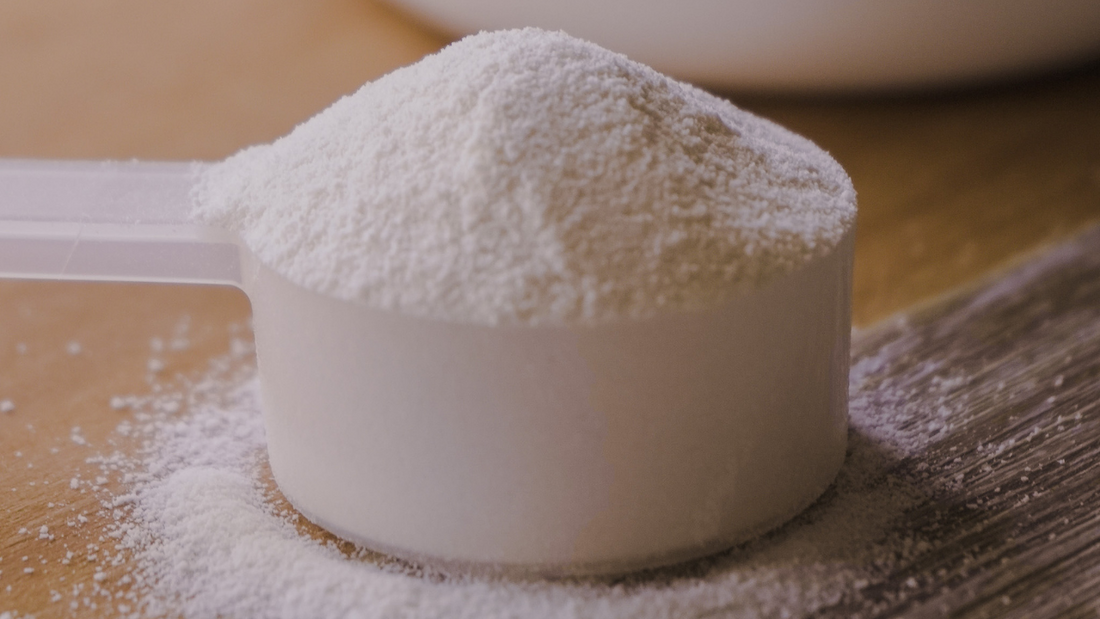Read Time: 5 lecture min | Categories: Brain Health | Collagène
7 bienfaits moins connus du collagène
Patience Lister, BSc
Partager cet article
Collagen has been trending in the beauty world as a must-have skincare supplement, and we’re not the least bit surprised! There are many other benefits of collagen you may not be aware of even if skin care is not your priority.
Collagen is Your Body’s Main Protein
As the main protein in your body, collagen makes up 30% of all your protein! [1,2]
- Joints and bones
- Muscles
- Tendons
- Gut
- Blood vessels
- Brain
Why Do You Need Collagen?
Collagen forms the structure of your body’s connective tissues, essentially working as the “glue” that helps hold your body together. [3] And like all proteins, it is made up of amino acids, including arginine, glutamine, glycine, and proline.
As we age, these amino acids become less available in the body. By age 30, the body’s ability to make collagen begins to slow, and overall collagen levels decline. This decline can be further magnified by lifestyle factors that restrict collagen production, such as stress, poor diet, smoking, and illnesses. [2]
Although collagen decline is most visible in the skin, it impacts the health and function of other areas of the body just as much. It also slows the tissue repair process, meaning that damaged joints, muscles, gut, and other regions take longer to heal. [2]
Thankfully, supplementation with tiny pieces of collagen called collagen peptides can help compensate for declining levels.
Collagen Benefits More Than Your Skin
Even though collagen peptides are commonly taken as a beauty supplement, they can be taken for other health goals. This includes some lesser-known benefits you may not have known about! Here are seven benefits of collagen that do not involve skin care:

1. Joint movement
Thanks to collagen, every jump, stride, or stretch that you do is cushioned by your joints. This is because joint cartilage, as well as tendons and ligaments surrounding it, contain collagen. Without healthy joints, workouts and other activities would be painful and jarring. Joints can become damaged by strenuous exercise, overuse, stress, and age-related degeneration.
Joint pain and stiffness can also be due to osteoarthritis, a condition caused by the breakdown of articular cartilage within the joints. [4] Thankfully, collagen can be taken as a supplement to reduce cartilage breakdown and stimulate the production of joint and bone tissue scaffolds. Studies have found that collagen can help people with osteoarthritis regain their mobility by relieving the pain and stiffness in their joints. [5,6]
2. Bone density
Your bone mineral density depends on more than just calcium! Collagen makes up 80% of the total protein in your bones. [1] If you are concerned about bone loss as you age, make collagen part of your bone-healthy choices.
Studies show that supplementing with collagen may inhibit bone resorption, a process that can lead to bone loss. In people prone to bone loss, such as postmenopausal women, daily collagen supplementation can also improve bone mineral density. [7]
3. Muscle strength
Without collagen, your muscles would be much less resilient. Muscles have a delicate network of collagen in the connective tissue surrounding each of their fibres. This strong yet flexible protein helps reinforce them.[3] This is why there are benefits of collagen for athletes.
The more active you are, the more collagen you need to heal after exercising. Research suggests that supplementing with collagen peptides can increase the benefits of your regular strength training by slightly enhancing gains in muscle strength and lean muscle mass. [8]
This also applies to active seniors who want to counteract muscle atrophy. Studies have found that elderly patients who supplemented with collagen while also engaging in physical training were more able to increase their muscle mass and strength. [8]
4. Gut health
If you suffer from poor gut health, collagen might be worth a try. Medical studies show that irritable bowel syndrome (IBS) patients experience higher turnover rates in the collagen making up the intestinal lining.[9] Inflammatory bowel disease has also been linked with lower blood levels of collagen, indicating a potentially greater need. [10]
Why is collagen good for gut health? Collagen plays an essential structural role in the digestive tract because of its role in the formation of connective tissue.
Although research is still limited, collagen supplies the amino acid glutamine, which is critical to protecting and repairing the intestinal barrier. Peptides from protein-rich foods are also known to help manage intestinal barrier function. [11]

5. Heart health
It’s time to add collagen to your list of heart-healthy nutrients! Each of your arteries is surrounded by a delicate tissue made of a strong collagen matrix. This keeps arteries flexible and allows them to circulate blood efficiently.
Although more studies are needed, research suggests that collagen peptides may help support healthy blood lipid levels and prevent plaque buildup in the arteries.[12] As a result, it may also play a role in maintaining healthy blood pressure. [13]
6. Brain health
Did you know that your brain is designed to make its own collagen? Collagen is needed for protecting the brain’s neurons. Just like the rest of the body, slowed collagen production may leave the brain more vulnerable.
A few studies have found that supplementing with collagen helped healthy, middle-aged adults improve aspects of their brain structure and memory. [14]

7. Collagen for men
Is collagen good for men? The answer is yes! Collagen supplements may be more popular with women, but they are equally beneficial for men. This is because everyone experiences declining collagen production as they age. The main difference between men and women is how collagen turnover changes at each stage in life. [15]
Supplement Your Natural Collagen Production
Collagen peptides can be taken in tablets, gummies, or powder formats to supplement your own natural collagen production.
By providing the nutritional building blocks needed to regenerate collagen and elastin fibres, a range of collagen formulas is available to support healthy bones, joints, muscles, and so much more.
Read our other collagen blogs to learn more about collagen and how to choose the right collagen for you.
